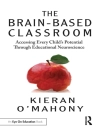Blends practitioner-focused and culturally responsive interventions to provide an innovative approach to learning
With the aim of transforming flawed child welfare practices and policies into a more equitable system, this comprehensive, practice-based text delves into contemporary child welfare practice from antiracist, social justice, and decolonial perspectives. Incorporating first-hand knowledge of day-to-day practice, the book examines the many roles of professional child welfare workers, foundational skills they need to work in the field, the challenges and promises of trauma-informed practice, how to maintain a dedicated workforce, and strategies for reshaping the system.
This book covers child welfare practice thoroughly, from reporting to investigating and everything in between. It also explores relevant policies, signs of abuse/neglect, building relationships, anti-racist approaches, and the importance of cultural sensitivity. Throughout, it emphasizes the trauma experienced by children and families involved in the system and the impact on child welfare professionals. Learning objectives, reflection boxes, discussion questions, and additional resources are included in every chapter to provide opportunities for students to apply concepts. Additionally, case studies in most chapters offer practical applications to real-world situations. To accompany the book, qualified instructors have access to an Instructor Manual, Sample Syllabus, Test Bank, chapter Power Points, and supplemental videos covering topics such as careers, engagement, and foster care.
Key Features:
- Informed by real-world experience demonstrated through case studies, reflection boxes, and discussion questions
- Weaves antiracist, social justice, and decolonial perspectives throughout and includes the viewpoints of diverse voices from the field
- Provides extensive coverage of trauma-informed practice
- Devotes a separate chapter to the unique issues of foster children in school settings
- Connects content to the 2022 Educational Policy and Accreditation Standards from the Council on Social Work Education
- Covers a broad range of career opportunities for child welfare workers in myriad settings
สารบัญ
List of Contributors
Preface
Acknowledgments
Springer Publishing Resources
SECTION I. CHILD WELFARE HISTORY AND SERVICES
Chapter 1. Overview and History of Abuse and Responses to Abuse and Neglect in Child Welfare Practice
Chapter 2. Types of Abuse and Neglect in Child Welfare Practice
Chapter 3. Careers in Child Welfare
Chapter 4. Policies Affecting Child Welfare Practice
SECTION II. CHILD WELFARE PRACTICE
Chapter 5. Decolonizing Child Welfare: Social, Economic, Environmental, and Racial Justice
Chapter 6. Engagement and Assessment
Chapter 7. Placement Disruption and Family Reunification
Chapter 8. Foster Care and Adoption in Child Welfare Practice
Chapter 9. Addressing the Needs of Foster Children in School Settings
Cassandra Mc Kay-Jackson, Sara Castillo, Arely Cerda, and Eric Velasco
SECTION III. SPECIAL ISSUES IN CHILD WELFARE
Chapter 10. Special Topics in Child Welfare Practice
Chapter 11. Trauma-Informed Practice for Child Welfare
David A. Simpson and Verónica Rodríguez Bailey
Chapter 12. Secondary Traumatization and Self-Care for Child Welfare Professionals: Preventing Burnout
Verónica Rodríguez Bailey and David A. Simpson
SECTION IV. VISIONS FOR TRANSFORMATION OF THE CHILD WELFARE SYSTEM: PUTTING CHILDREN AND FAMILIES FIRST
Chapter 13. Looking Forward: Putting Children and Families First
Index
เกี่ยวกับผู้แต่ง
Yolanda Jordan, MSW, LCSW, is a highly seasoned practitioner with over 32 years in child welfare service. Ms. Jordan has worked in various positions within child welfare, including case management, clinical services, and the juvenile court. She also has been a supervisor and manager for foster care placement teams. Ms. Jordan received a departmental award, Outstanding Child Welfare Administrator, and recognition from NASW-IL-Calumet District (Emerging Leader Award, Social Worker of the Year). She is a licensed clinical social worker and private practitioner serving children, families, and couples. Ms. Jordan is currently a Program Manager for Cook County Agency Performance in Illinois, where she manages supervisors, provides direction for clinical competency, community and inter-agency relationship building, professional development, and program improvement through measurable outcomes.












